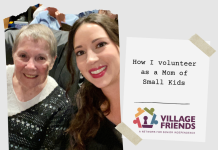My son, Levi, is approaching his fifth birthday, and I’ve been thinking recently about what I want to communicate to him as he grows older. There’s a lot. The thing is, I remember being a kid, and things my parents told me didn’t register until much later. That’s not to say that I shouldn’t try to teach Levi anything until he’s older, but more that I need to be aware he probably won’t get what I’m saying until suddenly, one day, he does. So that brings me back to the question – what do I want to teach him?
There are four main areas of wisdom I want to talk to him about. First, I want to teach him about life; second, about people; third, about himself; and fourth, about God. There’s a lot to impart, as I mentioned, so I want to start a little series of posts to discuss these concepts. This first post will relate to what I want to teach Levi about life.
Life is a huge concept encompassing so many things. Where to begin? I suppose I should start with things Levi knows already and expand on or extrapolate from them. I want to frame my little lessons, as it were, around things he says and does every day. I want to make those teachable moments, not just let them pass or even resent them. When he says these things, I hope I’ll remember he looks to me for guidance and love, and one of the best ways I can provide those things is to help him understand and process the world around him. The following are some lessons I need to call to mind in those moments.

“But I want it now.”
This is one of Levi’s mantras. I hear it many, many times a day, and it’s easy to grow frustrated with him about it. It’s so easy to just snap at him to be quiet or even to tell him something wise with a bad attitude. “You’ll just have to be patient,” I say a lot of the time, but my tone is harsh, and I’m usually just trying to get him to be quiet rather than trying to instill anything in him.
What do I wish I would say? If I could stop myself, if I could pause things and capture Levi’s attention in those moments, what would I tell him? What is the honest truth those words hold for me?
“I want things now, too, Levi.” That’s how I’d start. I want financial stability, I want the stress at work to cease, and I want my disease to be cured. I want it all right now, too. How marvelous would it be to not worry that the next big hit to our finances will end in crisis? How wondrous would it be for my coworkers to make peace, for our workplace to be a place of kindness and unity? How very relieving it would be not to have to worry that nightfall will send me into a tailspin? It would be wonderful to live in a world where we could skip all the pain and sorrow to get to the happy ending. At least, so we think.
Yet, it was in those times we had to rely on outside help for our finances that I learned true humility and gratitude. It is in these times of conflict, I’m learning what it truly is to seek peace, what it means to empathize and care for one another. It’s in my illness, I have been forced to cling to God and loved ones and truth to survive. I hate this pain. I’m not saying waiting is not hard or we ought to bear it as though it’s not a burden, only that the suffering of patience can bring out and grow our character in a way the happy endings never could.
So what would I tell Levi?
“I want things now, too, Levi. Mommy wants a lot of things, but she can’t have them right now, just like you’ll have to wait, too. But Mommy sees that it’s hard, and I’m so proud of all the times you’ve waited for things. Being patient is hard, but it’s part of being a big boy, and you’re growing up to be such a big boy. I love you, and I’m proud of you for being able to wait.”
He might look at me funny, or he might cut me off with another whining request, and I know he won’t get it all when I tell him that. Still, I need to tell him how much it gratifies me to see him practice patience. He needs to know waiting is not just some cruelty I’m inflicting on him but a way he can show me how grown up he is.
“Why?”
I think every kid has this stage, the “why” stage. Levi has asked why before, but recently, it’s been like a ceaseless chant for him.
“Please shut the door.”
“Why?”
“Because it’s cold outside.”
“Why?”
“Because it’s winter.”
“Why?”
“Because the world is tilted on its axis a little bit away from the sun right now.”
“Why?”
“Because it is! It just is!”
Like with the previous statement, “I want it now,” the question, “why,” grows old very quickly. I lose my cool pretty easily when I hear it over and over again.
But then I remember laying in bed, asking my dad questions about how the world works. Every night, after brushing our teeth, getting on pajamas, and reading a story, my sister and I would turn out the lights, get in bed, and ask Dad questions. A lot of them were about science – about dinosaurs and stars and the galaxy and bugs and such. I don’t think we ever stumped him, but as I grew older I realized there a questions out there we don’t know the answers to. Why is the speed of light 186,282 miles per second? What causes schizophrenia? How can we achieve world peace? We don’t know the answers.
So I want to tell Levi this:
“I love how inquisitive you are, how much you want to know how things work and why things are the way they are. Never lose that. There will always be something to learn, something to understand more deeply. Never stop growing. But Levi, there are some things no one knows. People are limited. We know many, many things, but there are just as many things we aren’t sure of and just as many things we have no idea about at all. Sometimes, it’s better to sit back in wonder than to try to figure everything out. Sometimes, understanding that we can’t understand is the best lesson we can learn.”
“It’s scary.”
When Levi says this, I definitely give pause and try to understand what’s frightening him. For a while, he was saying, “I’m scared of heights,” whenever we descended the stairs from our apartment. Other times, he says this about the dark when he’s going to bed. Besides that, he might say it about a villain in some show or movie, though those times he seems to be more informing me to show me how smart he is than because he’s actually afraid.
Fear is something everyone has dealt with. It seems an essential part of the human experience, thus Levi is no exception. Still, when he says, “It’s scary,” or, “I’m scared,” I want nothing more than to shelter and protect him. I might even become angry at the thing he feels is threatening him, especially if it’s another kid or something.
My instinct is to guard my son, but then, there is more to be gleaned from these moments than Levi’s increased trust in me. Life is scary, and just because we grow up doesn’t mean we suddenly become fearless. We might not be scared of the dark or of Disney villains anymore, but losing a valued relationship, being laid off, having a financial disaster, and failing health are all reasons we might mentally cower in our adult life. We might not cry or run and hide under our blankets in the face of these things like we did as children, but we can hide ourselves instead in a busy schedule, shallow friendships, a well-paying job, addictions, or codependency. How dearly I want to help Levi avoid these traps!
Yet, I can’t help him understand how to cope if I remove hard things from his life. If I put myself between him and everything that scares him, he’ll never learn courage. He’ll never develop that noble, valiant thing called perseverance, so I must weigh the benefit against the cost before I fight Levi’s battles for him.
That is not to say I should never step in, especially at this age (he’s four), but maybe I should change the way I frame things for him. You see, sometimes I try to convince him that whatever it is he’s fearing is not scary. It’s an innocent enough endeavor-what frightens him doesn’t frighten me, so I try to help him understand things as I understand them. But then we’ve all been there, in that place where we’re distraught, upset, or terrified by something in our life and someone tries to convince us it’s not that bad. It doesn’t help, not at all. That type of “comfort” ends up making me feel less than, weak, and pathetic. It’s not that bad, after all, according to the person I’m talking to. I should be able to get over it, but I can’t, so I end up wondering what’s wrong with me. I don’t want to do that to Levi.
What can I tell him instead? “I know you’re scared. I know the dark frightens you, and you think monsters are in your closet. I promise you, you’re safe, but Mommy also wants you to know she sees how brave you’re being, and she’s so, so proud of you. Please, tell me if you need help, but know you are a strong, brave boy, too. I love that about you. I love you.”
At the end of the day, Levi is a small human with fears and desires and hopes and questions. I think I forget that sometimes. I forget to respect him. Writing this, though, reminds me how much I love him and how I ought to regard him with the same appreciation I have for other people around me. He is small, and he is growing, but the things he says are not just some meaningless chatter. They reflect his thoughts and feelings, and I ought to take time to understand and properly respond to them. Maybe, by remembering these three replies to his more frequent expressions, I can help him understand and process life, in all its beauty and tragedy, in all its happiness and sorrow, in all its elation and fearfulness. Levi deserves my rapt attention, and here I remind myself to give it to him.












Love this <3
Comments are closed.